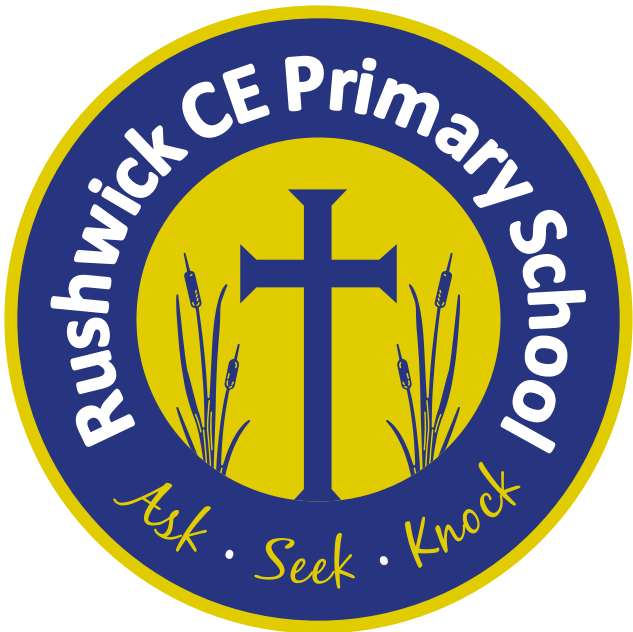SEND
What does SEND mean?
SEND is the abbreviation for 'Special Educational Needs and Disabilities'
Children are all different and make progress at different rates. Different children have different ways they learn best and our teachers take this into account when planning and organising lessons. Children making slower progress or who have difficulties accessing the curriculum may be given additional support to help them achieve their best.
Please click on this link to find out more about SEND.
Contact the Special Educational Needs Co-ordinator; Mrs. Stephens through the school office.
What kinds of special needs are provided for in this school?
At Rushwick, we believe that every pupil, regardless of gender, race or disability, has a right to equal access to a broad and balanced curriculum.
We consider it essential that the curriculum is presented in a supportive and stimulating atmosphere, which values each child and encourages them to achieve their full potential.
This encompasses the four main areas of SEND.
- Communication and interaction
- Cognition and learning
- Social, mental and emotional health
- Sensory and/or physical
Where can I find out about what is available locally for me, my family or my child? Worcestershire County Council has published its own Local Offer which can be accessed by the link below
https://www.worcestershire.gov.uk/sendlocaloffer
How will my child be supported to be part of the school?
We believe that every child is an individual and should be valued. We believe that all children should have their needs met and should be given an equal access to the curriculum.
Our aim is to provide individual and small group provision for those children with Special Education Needs and or Disability, whatever those needs may be, so that they can reach their full potential. We feel that their contribution to school life should be valued and we seek to build their self-esteem.
Rushwick CE Primary School is committed to providing an appropriate and high quality education to all the children living in our local area. We believe that all children, including those identified as having special educational needs, have a common entitlement to a broad and balanced academic and social curriculum, which is accessible to them, and to be fully included in all aspects of school life.
Levels of Intervention
For pupils at Rushwick CE Primary School, their needs are met using three levels of intervention, described as ‘waves of support,’ which support access to the new National Curriculum.
Wave 1 is the provision of quality inclusive teaching that takes into account the learning needs of all the pupils in the classroom. It includes differentiated work, flexible groups and creating an inclusive learning environment.
Wave 2 is the provision of specific, additional time limited interventions provided for some pupils who need help to accelerate their progress or enable them to work at or above their age-related expectations. They are often targeted at a group of pupils with similar needs.
Wave 3 is the targeted provision for a minority of pupils where it is necessary to provide highly tailored intervention to accelerate progress or enable children to achieve their potential.
The Graduated Response
Where a child is identified as having Special Educational Needs, schools and settings should take action to remove barriers to the child's learning and put effective special educational provision in place. This is called SEN support. Support should take the form of a four-part cycle involving the parent and carers and the child. By taking this approach earlier decisions and actions are revisited, refined and revised with a growing understanding of the child's needs and of what support will help to secure good progress and good outcomes for them. This approach is known as the Graduated Response (see guidance document link below).
How will I know how my child is doing?
At Rushwick CE Primary School your child’s progress is continually monitored by their class teacher, SENDCo and the Leadership Team.
- The progress is reviewed every term and an attainment grade is given in reading, writing and mathematics.
- If your child is in Year 1 and above, but is not yet working within the National Curriculum, a more sensitive assessment tool is used which shows their level in more detail and will also show smaller but significant steps of progress. The levels are called ‘P levels’.
- At the end of each key stage (i.e. at the end of Year 2 and Year 6) children are formally assessed using Standard Assessment Tests (SATs). This is something the government requires all schools to do and these are the results that are published nationally. (These will no longer be compulsory for Year 2 pupils).
- Children on the School SEND register will have an Individual Pupil Map (IPM) This has targets set for your child and will be reviewed regularly. You will be invited to attend a meeting in order for us to review and set new targets together.
- The progress of children with an Educational Health Care Plan (EHCP) is formally reviewed at an Annual Review with all adults involved with the child’s education. For more information about an EHCP please follow this link.
- The Leadership Team and SENDCo will also check that your child is making good progress with any individual work and in any group that they take part in.
- A range of ways will be used to keep you informed, which may include:
- Home liaison book
- Parents’ evenings
- Additional meetings as required (structured conversations)
- Reports
Useful Links for Parents
